On the road with Turkey's march for justice
-
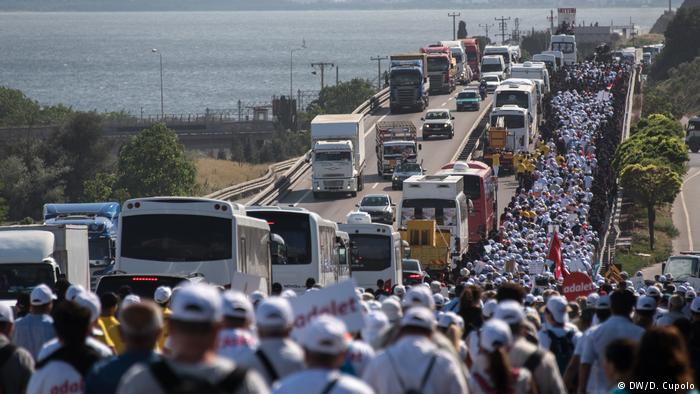
Protesters call for justice: tens of thousands of protesters make their way to Istanbul. The march is in response to President Recep Tayyip Erdogan's ongoing purges following last year's failed coup and was sparked when opposition party MP Enis Berberoglu was sentenced to 25 years in prison. The march kicked off three weeks ago in Turkey's capital Ankara and is headed to the prison in Istanbul where Berberoglu is held -
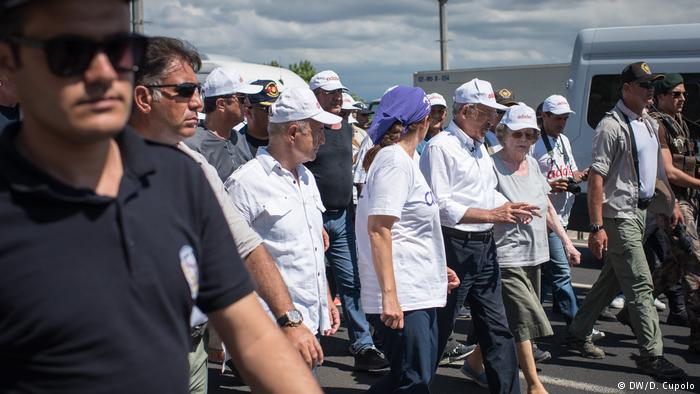
Denouncing government crackdowns: leading the way is Kemal Kilicdaroglu (c), head of Turkey's main opposition party, the Republican People's Party (CHP), who has been likened to Indian independence leader Mahatma Gandhi. Kilicdaroglu said there is no other way to denounce ongoing crackdowns and the deterioration of democratic institutions. "We feel like we're marching against a wall, and we're going to demolish it," he said -
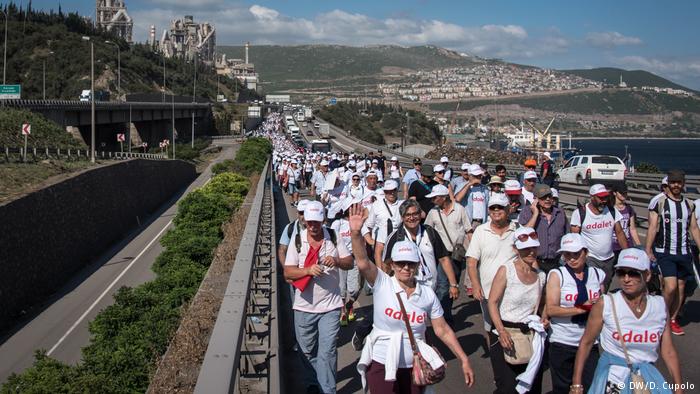
'Coalition against fascism': "it's our obligation to form a coalition against the nation's slide towards fascism," said Tur Yildiz Bicer, CHP deputy for the city of Manisa. "After the referendum, we told ourselves 'No, it's not over' … Now we are seeing that even some AKP supporters are backing our march and this shows people's minds are changing for the better." Some 20,000 to 40,000 people joined the march -
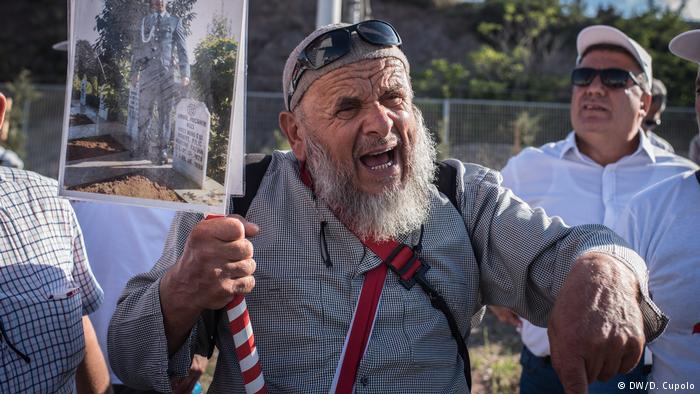
'Rights, law, justice': one of the protesters is Vesyel Kilic, 65, from Rize, who said he voted for conservative parties until his son was jailed following last year's coup attempt. "It's been 12 months and he still doesn't have an indictment," Kilic said. "I want justice and I noticed this leftist ideology is close to my own, so I came out to support the march." Protesters here are demanding "rights, law, justice" -
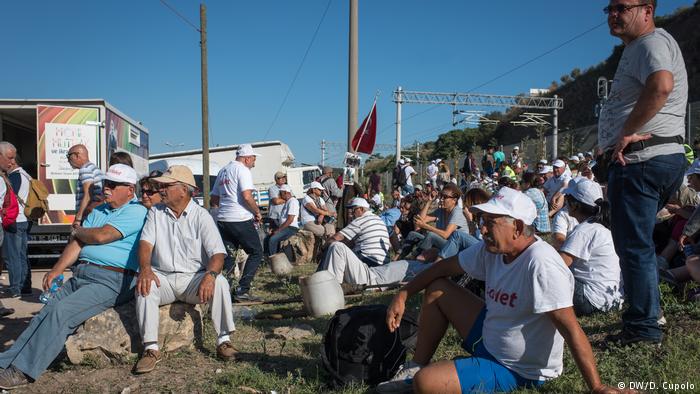
United against Erdogan? While the organisers with CHP said one of their main objectives was to unite opponents of Erdogan's agenda, the task will likely prove difficult as relations between Kemalists and Kurdish groups remain tepid due to the political risks involved in being affiliated with armed Kurdish movements. Above, marchers are shown resting in Tavsancil, Turkey, before continuing to Istanbul -
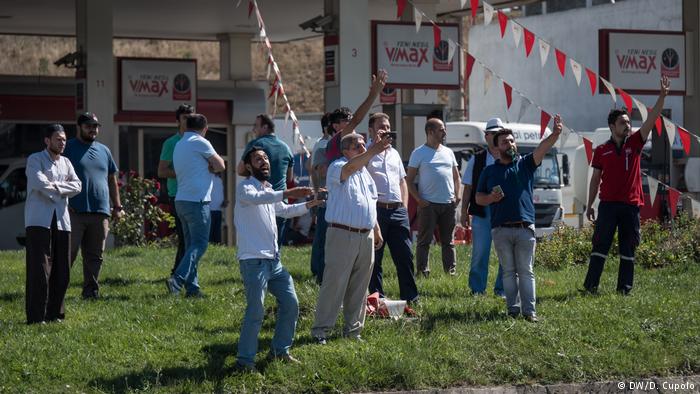
Backlash from Erdogan supporters: protesters were often heckled and insulted by passing vehicles and crowds of Erdogan supporters who had gathered along the highway. "The march is not a fight for justice, it only brings shame to the people who are walking in this heat," said Umut Kaveci, 26, a transportation worker not pictured above. "They are just causing traffic [jams] and no one needs that" -
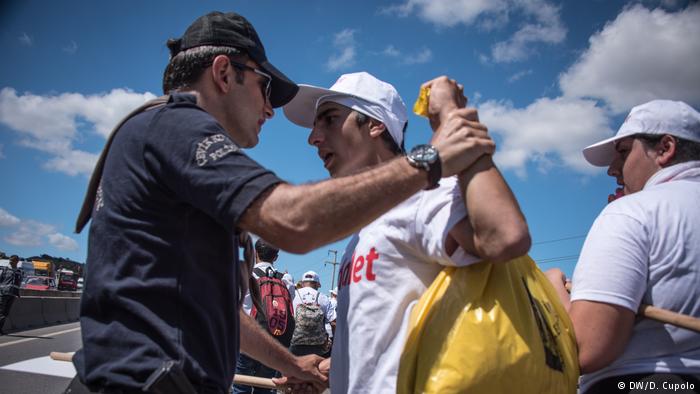
Heavy security presence: policing levels were high throughout the march to deter possible attacks and altercations between groups of contrasting ideologies. For the most part, the protest proceeded smoothly, aside from occasional confrontations like this one, where an officer restrained a teenager and told him, "I've been walking with this march since Ankara and I haven't been aggressive with anyone. Don't test me" -
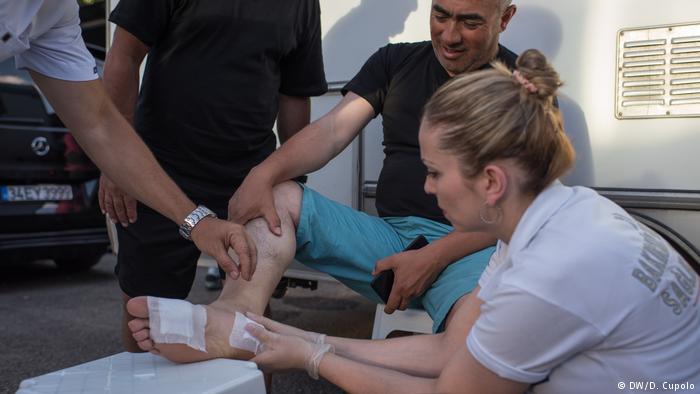
Blisters and heat stroke: one of Kilicdaroglu's bodyguards gets his feet bandaged after another long day on the road. Blistered, swollen feet are common among marchers, as well as heat stroke. Temperatures surpassed 40 degrees Celsius in recent weeks and one protester died after suffering a heart attack during a prolonged uphill climb -
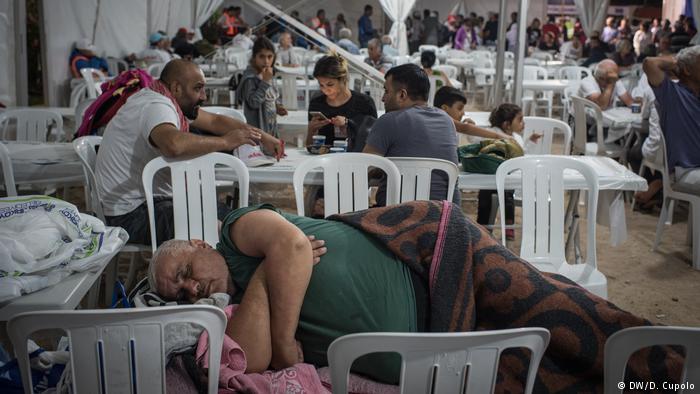
Rough terrain: regardless of the obstacles, demonstrators have followed Kilicdaroglu's lead through Turkey's rough terrain. The march covers up to 20 km per day. By night, protesters either return to their homes or camp out on CHP funded campsites where they are provided with food and rudimentary shelter. Above, an exhausted protester sleeps in a dining tent in Tavsancil, just east of Istanbul -
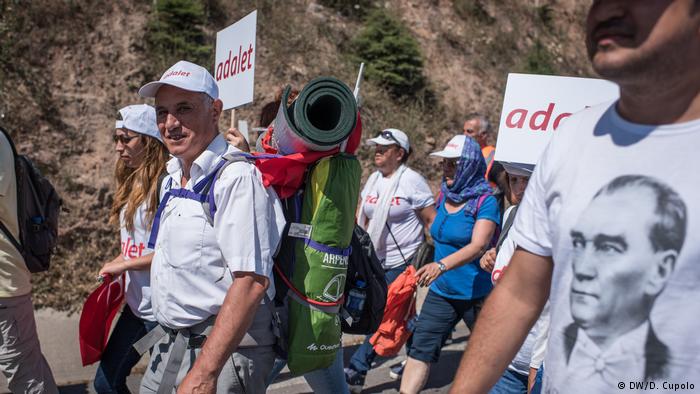
'Doing this for my grandchildren': Husnu Sucu, a 58-year-old retiree, said he remained undeterred after walking more than 120 km in eight days and was camping each night with the protesters. "I am doing this for my grandchildren," Sucu said. "We cannot let the current government continue doing what it wants without doing something about it. It is too dangerous for the future of our country"
https://qantara.de./en/node/29262
Link
To all image galleries
